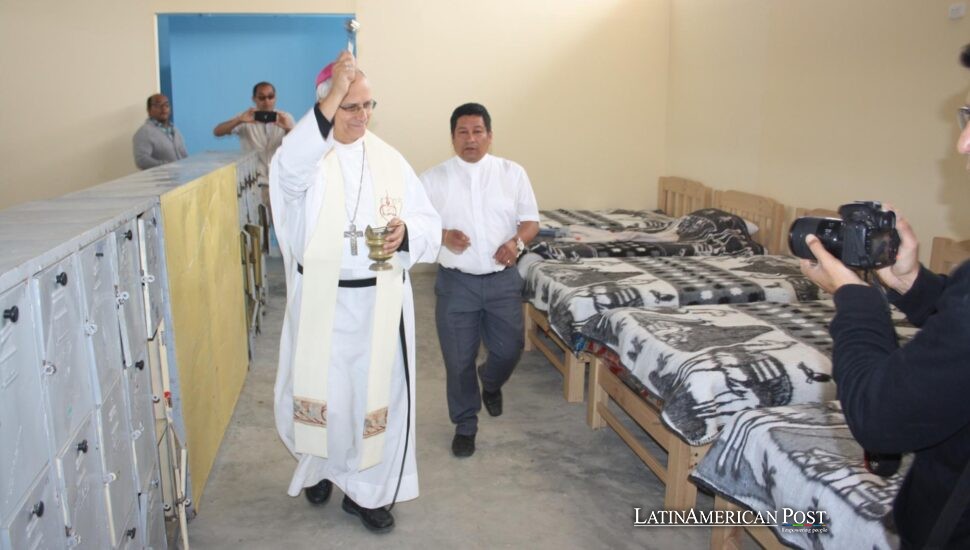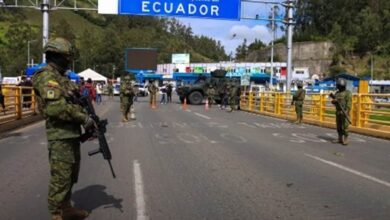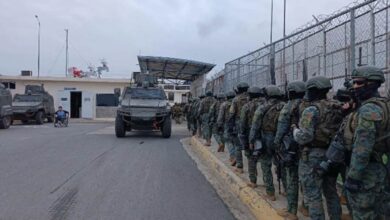Venezuelan Journeys, Ecuador Dreams Thrive Under Pope Leo’s Migrant Promise

Thousands of Venezuelan migrants in Peru draw courage from Pope Leo XIV’s call—”I am a migrant; Jesus is a migrant”—echoing across Latin America. Families in Chiclayo, where he served, remember a bishop who championed their cause and renewed their hope.
Gathering in Chiclayo: A Bishop of the People
For many Venezuelan families who arrived in northern Peru, the memory of Pope Leo XIV—formerly Bishop Robert Prevost—carries more than spiritual weight. His name stirs recollections of last-minute rescues, emergency hospital visits, and gestures of welcome that seemed unimaginable amid their journeys of uncertainty. Some of those memories come from Venezuelans like Vixy Ferrer, who reached Chiclayo at 37 weeks pregnant in 2018 after an arduous bus ride. Back home in Venezuela, the healthcare system’s collapse meant she could not schedule the cesarean section she desperately needed.
“Monseñor Robert Prevost was a person who always raised his voice for migrants,” Ferrer told EFE from her modest home. “He would say to us, ‘Do not worry. Remember that Jesus was also a migrant.’ Those words still echo in my heart.”
Soon after Ferrer settled in Chiclayo, her mother, Fina Sofia, joined her. Yet their family reunion was cut short when Fina was diagnosed with breast cancer. Without proper documentation, accessing treatment seemed impossible. According to Ferrer, it was thanks to the intervention of then-Bishop Prevost and the Diocese of Chiclayo’s Commission of Human Mobility that her mother obtained the medical tests, chemotherapy, and a residency permit to address her health needs.
Today, as Pope Leo XIV leads 1.4 billion Catholics worldwide, Ferrer’s family can scarcely believe the same man who made calls on their behalf to ensure Fina’s life-saving treatments is now the spiritual head of the global Church. In the northern reaches of Peru, where the desert landscape meets the Pacific coast, Venezuelan migrants like Ferrer hold onto his message of hope: “I am a migrant; Jesus is a migrant.”
They feel these words elevate their experiences to something universal—connecting hardships and faith in a single thread of compassion. For Ferrer and countless others, memories of a Bishop who supported them are seared in their minds, and they follow his rise to the papacy with a profound sense of gratitude.
Beyond Assistance: Building Sustainable Futures
Ferrer’s experience reflects the difficulties many Venezuelans face. They move to Peru, which now receives the second-largest number of migrants from Venezuela. Colombia is the only country receiving more. An escape began because of extended problems in the economy and in politics. This escape caused serious changes for families. Often, they arrive with a small number of personal items. Their legal standing is not clear.
Recognizing the scale of this humanitarian emergency, Bishop Prevost—who would become Leo XIV—joined forces with religious and secular organizations to streamline aid. He worked with the Diocese of Chiclayo’s Commission of Human Mobility and Anti-Trafficking, led by Augusto Martínez, to coordinate food, shelter, and legal assistance. However, the hallmark of his approach was an insistence on going “beyond assistance.”
In an interview with EFE, Martínez said, “He did not want them to depend permanently on external help. He focused on ensuring they could stand on their own feet.” Under Prevost’s guidance, the Commission partnered with international aid groups and government agencies to create programs for migrant regularization.
Many Venezuelans living in Chiclayo remember the early days when they lined up at public offices with little idea of filling out immigration forms. The Commission’s outreach changed that by helping migrants obtain temporary residence permits, eventually opening doors to permanent documentation. With official papers, these new residents could apply for jobs, access public healthcare, and even launch small businesses.
“Monseñor Prevost helped us see that we’re not powerless,” Ferrer said. “We can find ways to contribute to the community rather than just survive on charity. He was out in the streets, opening soup kitchens and shelters, but always said the goal was to achieve dignity through self-reliance.”
Martínez believes the empathy that fueled Prevost’s work was rooted in personal experience. Arriving in Peru as a missionary in 1985, the future Pope came from the United States, where his Spanish mother had emigrated in search of a better life. At that time, Peru struggled under waves of terrorist violence, making the young priest’s mission especially challenging.
“He always called himself a migrant,” Martínez recalled to EFE, explaining how the bishop’s humility resonated with Venezuelans who felt uprooted and alone. “He would see himself in the individuals who fled Venezuela’s crisis. His mother’s immigration story shaped him deeply.”
Hope for Change in a Turbulent World
As Ferrer and Martínez watch global headlines from a humble house in Chiclayo’s La Victoria district, they hope Pope Leo XIV’s perspective on migration will influence international discourse. Though countries like Ecuador and Peru have offered refuge to Venezuelans, the broader political climate—particularly regarding the United States—has grown increasingly cautious about immigration.
“In these difficult times, especially with the U.S. administration’s view on migrants, I believe Pope Leo XIV will try to be a bridge,” said Martínez. He’ll advocate for more flexibility in addressing this human reality.
He recalls how the newly elected Pope was never confined to office walls but constantly visited community kitchens and migrant shelters to listen, act, and uplift. This hands-on approach, Martínez said, not only solved individual crises but established longer-term projects that helped Venezuelan migrants legalize their status.
From Ferrer’s perspective, the papal transition is a beacon of optimism for migrant communities worldwide. “I’m sure Leo XIV won’t just help in one single place—he’ll help at a global level,” she said, surrounded by her two children. She also has siblings living in other South American nations, such as Ecuador, where tight immigration policies have often left Venezuelans struggling to regularize their status. “We pray the Pope’s words will reach those presidents so they can be a bit more understanding,” she added.
That call resonates with migrants everywhere who long for more welcoming policies. While official documents and legal procedures matter, Ferrer believes simple gestures of empathy, like providing shelter or a hot meal—transform despair into possibility. Pope Leo XIV, she says, understood that even a small step toward dignity could renew a person’s sense of self-worth.
In Chiclayo, “I am a migrant – Jesus is a migrant” remains a sentiment held by people who once sought the bishop’s aid. They consider his constant dedication to showing the human element in their situation. Ferrer stated, “I will not forget his faith in our ability to progress.” The bishop prevented Ferrer’s mom from dying when other people said it was not possible. For Ferrer, it is an honor to see him in charge of the Church now.
Also Read: Brazil Battles a Surreal Lake Disaster as Blue Dye Runs Rampant
As borders tighten and humanitarian crises multiply, the Venezuelan families who arrived in Peru still echo Pope Leo XIV’s central message: faith, empathy, and practical support can reshape lives. For them, the new Pope embodies the hope that the world might recognize every migrant’s struggle—and the potential each migrant brings to a new land.





